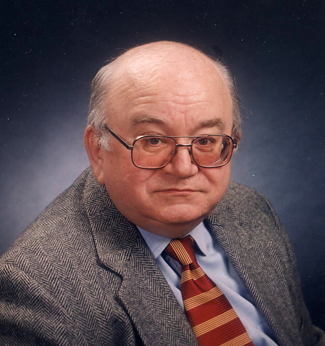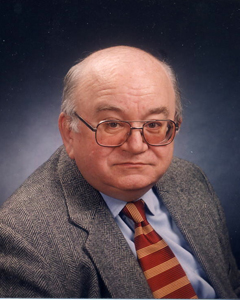As reported by Actionable Intelligence last week (see “HP Sues Ninestar and Apex Micro for Patent Infringement”), Hewlett-Packard has filed suit in U.S. federal district court for infringement of its U.S. patent numbers 6,089,687 (the ‘687), 6,264,301 (the ‘301), and 6,454,381 (the ‘381). Named as defendants in the suit are Ninestar Image Tech Limited (Ninestar China), Ninestar Technology Co., Ltd. (Ninestar USA), and Apex Microelectronics Co., Ltd. (Apex). The litigation may have considerable consequences for the U.S. aftermarket ink tank business because the Ninestar companies supply new-build and remanufactured ink tanks covered by these patents and Apex supplies chips covered by the asserted patents to U.S. remanufacturers.
This case is both unusual and interesting in other ways. HP has asserted two of these patents (the ‘687 and the ‘301) against Ninestar before. In 2006, the printer giant filed complaints with the U.S. International Trade Commission (USITC) and in federal district court. The two patents were asserted again in 2009, against a group of companies not including Ninestar and Apex, before the same two bodies. Both cases were eventually settled between the parties, but the 2009 case also resulted in the ITC issuing a general exclusion order (GEO). That order remains in effect. It could involve patent claims different from those in the new case. Otherwise, one would expect that U.S. Customs would already have turned away shipments of offending cartridges and chips.
As a part of the boilerplate included in such settlements, Ninestar agreed that the two HP patents are “valid and enforceable.” Apex, chip supplier to Ninestar, continued to develop its chips in order to eliminate the infringement, and the company clearly feels that it succeeded in doing so. Apex has been especially aggressive this year, promoting its non-infringing chips on its website, employing several press releases, and even sending emissaries to present its case to U.S. remanufacturers. The company also secured a supporting statement from well-known attorney Ed O’Connor, who has represented a number of remanufacturers and remanufacturing associations (see “Apex Promotes Article from Attorney Stating its Chips Avoid Infringing ‘687 and ‘301 Patents”). This adds further interest to the case.
If that were not enough, the patents in question here may indeed come into question. They were granted in 2000, 2001, and 2002, respectively, well before the so-called KSR case in 2007 (KSR Int’l Co. v. Teleflex, Inc.) that resulted in the U.S. Supreme Court chiding the U.S. Patent and Trademark Office (USPTO) for granting patents for “inventions” that the Court called “obvious to one skilled in the art.” The two patents asserted in HP’s earlier suits appear to fall into this category. The ‘687 describes what seems to be an arbitrary choice of ways to store digital information concerning the size of the tank and the degree to which it is filled. The ‘301 describes a similar choice of ways to store information concerning ink properties (type, color, etc.) The ‘381 claims an interactive process for setting the print mode based on the volume of ink remaining in the tank, and it could be argued, at least, that it constitutes an invention. In any case, all three patents are weak, in this writer’s opinion.
But wait! There is more! Earlier this year, the U.S. Supreme Court heard an appeal of Alice Corp. v. CLS Bank International, now called simply Alice. The Court upheld the Federal Circuit’s holding that “Because Alice Corporation’s patent claims involving (1) a method for exchanging financial obligations, (2) a computer system as a third-party intermediary, and (3) a computer-readable medium containing program code for performing the method of exchanging obligations are drawn to a patent-ineligible abstract idea under 35 U.S.C. § 101, they are not patent eligible under Section 101.” Simply put, the Court’s decision calls into question patent claims like those in HP’s asserted patents on grounds that they constitute an abstract (unpatentable) idea. Several attorneys have noted a sharp drop in infringement lawsuit filings since Alice. This may be due to the fact that most companies don’t want to risk seeing their patents invalidated at trial.
HP obviously doesn’t think that will happen. Perhaps HP expects Ninestar and Apex to settle, as most defendants have in earlier infringement cases. In such a situation, the patents won’t even be reviewed.
So with HP’s latest lawsuit there arise questions of patentability and validity of the patents, the conflicting strong convictions of the HP and Apex attorneys, and perhaps the application of the old GEO to add interest to a case that is already important to the third-party supplies community.
So far, HP has not filed a complaint with the USITC. Typically, U.S. federal district courts will set cases aside until investigation by the USITC is complete. And typically, the defendants settle before the cases go back to court. As a reminder, the USITC has the power to ban imports of goods found to infringe U.S. patents and to fine those who violate the bans. Federal district courts have the power to award damages to the plaintiffs and to issue remedial orders.
The initial case-management conference is set for early January.
Tom Ashley worked in R&D for major printer OEMs for 20 years before accepting management positions with consulting firms specializing in digital printers and copiers including Dataquest and later BIS Strategic Decisions and InfoTrends. In 2004, he founded the U.S. branch of Pivotal Resources, a small consultancy specializing at the intersection of technology, intellectual property, and markets for digital printing.






